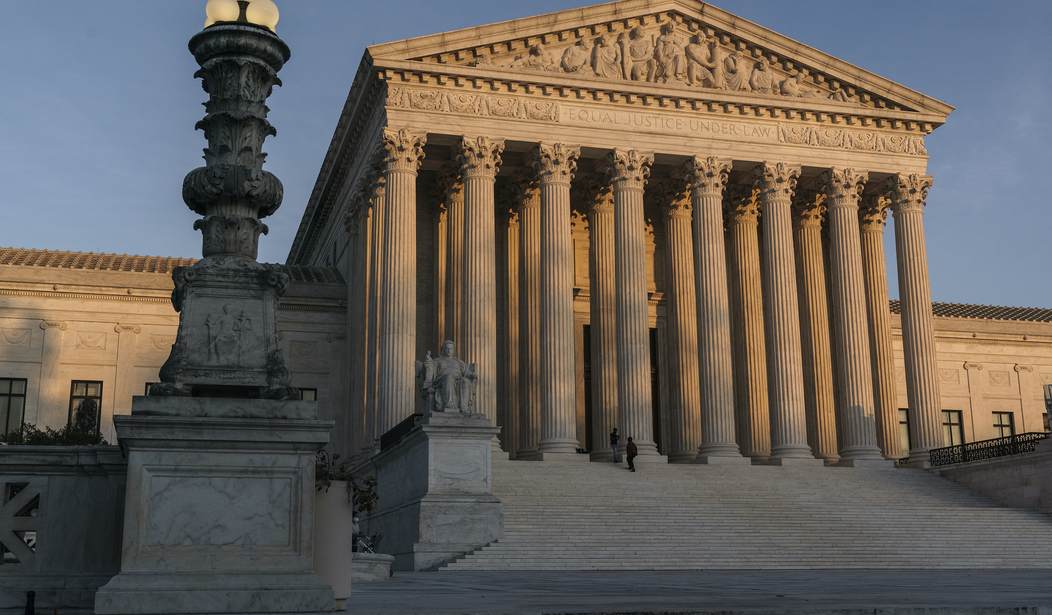As the nation's incipient racial reckoning following last May's killing of George Floyd morphed into the summer's riotous anarchy, the term "systemic racism" emerged as a fixture of our public discourse. What began as a somewhat arcane dialogue about purported police "militarization" and the "qualified immunity" legal doctrine soon took on a much more insidious tone. America, those like The New York Times' "1619 Project" fabulists told us, was rotten to its very core, blemished by the indelible taint of "systemic racism."
In reality, as many courageously pointed out amid unprecedented "cancel culture" headwinds seeking to stifle all dissent, there is no such thing as "systemic racism" that afflicts all of America's leading institutions. Despite the claim attaining mythological status, there is no factual basis to support it. There will, sadly, always be individual racists from all backgrounds and all walks of life, but American society in the 2020s simply does not have anything remotely resembling a legally enshrined regime under which its racial majority "systemically" oppresses its racial minorities. America in the year 2021 is not Germany in 1936; it is not South Africa in 1985; and it is not -- after the Civil Rights Act of 1964 and the Voting Rights Act of 1965 -- the Jim Crow South. This ought to be astoundingly obvious.
But while the notion of sprawling, multi-institutional "systemic racism" is a lie, there is at least one major American institution that does suffer from legally codified racism that tarnishes the institution's integrity, sullies its legitimacy and is so widespread that it might earnestly be dubbed "systemic." I speak, of course, of affirmative action admission policies in American higher education.
Recommended
Thankfully, due to the petition for a writ of certiorari that was filed before the U.S. Supreme Court just this week in the case of Students for Fair Admissions v. Harvard College, the nightmarish systemic racism of affirmative action might finally end soon. (As a disclosure, I personally know Students for Fair Admissions' attorneys, one of whom is now representing me before the U.S. Court of Appeals for the Fifth Circuit in unrelated litigation.)
There is at least some cause for optimism. A divided Court in 2016 upheld race-conscious university admissions policies in Fisher v. University of Texas, but the Court's composition has changed since then due to the successful Trump-era nominations of Justices Neil Gorsuch, Brett Kavanaugh and Amy Coney Barrett. What's more, affirmative action is perhaps the single issue upon which infamous Republican-nominated disappointment Chief Justice John Roberts is the most reliable. In addition to his joining Justice Samuel Alito's dissent in Fisher, it was Roberts who, in the 2007 race-conscious education case of Parents Involved in Community Schools v. Seattle, penned perhaps his most iconic line: "The way to stop discrimination on the basis of race is to stop discriminating on the basis of race." At a bare minimum, then, there should be four votes to grant the writ of certiorari and hear the case.
Affirmative action might have been devised as a well-intentioned effort to eradicate the vestiges of antebellum chattel slavery, but as Justice Clarence Thomas wrote in his 1995 concurrence in Adarand Constructors Inc. v. Pena, "Government sponsored racial discrimination based on benign prejudice is just as noxious as discrimination inspired by malicious prejudice."
And discriminate Harvard does. The university maintains noxious de facto racial quotas to penalize Asian Americans, redolent of the anti-Jewish Ivy League quotas of the early 20th century. Harvard's lawyers conceded at trial that Asian Americans are penalized by the admissions office's nebulous "personal rating" category -- and they are penalized simply for the fact of being Asian. The university engages in deliberate racial balancing, seeking to fill its incoming freshman classes with a largely preconceived, annually consistent racial breakdown.
Harvard's admission data are eye-opening. For high school applicants in the top academic decile of their class, whites are admitted at a rate of 15.3%; Asian Americans are admitted at a rate of 12.7%; Hispanics are admitted at a rate of 31.3%; and blacks are admitted at a rate of 56.1%. Poor refugees from Communist China and impoverished white students from Appalachia are thus placed at a "systemic" racial disadvantage relative to well-off Hispanics and blacks. In no rational universe is this a just arrangement.
Legal conservatives usually have myriad reasons for pessimism, but affirmative action could prove an exception. The justices have a real chance to deliver a grievous blow to the systemic racism that blights one of the nation's leading institutions. Let's hope they don't blow it.

























Join the conversation as a VIP Member